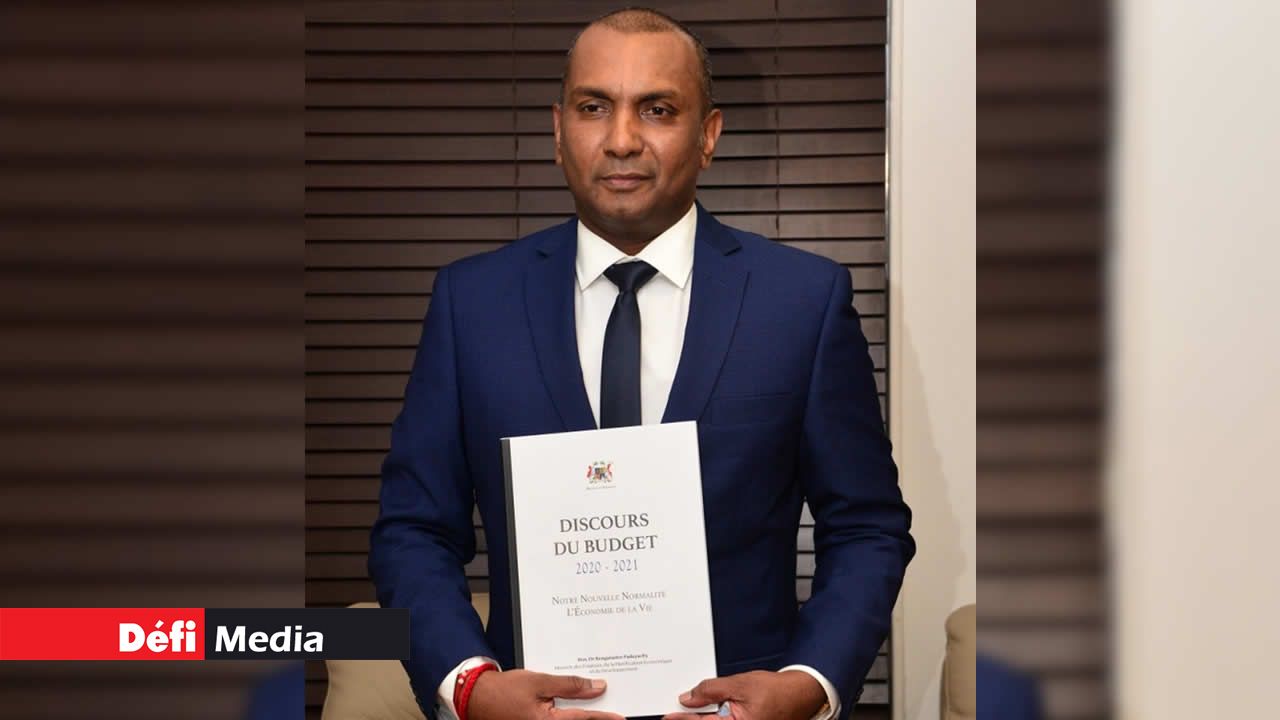
Even hell, goes the saying, is paved with good intentions. Although it falls short of substantially addressing the immediate issues related to the preservation of jobs and sustainable employment, the Budget 2020/2021 is soaked in popular social measures. In some way, it will help quell or at least appease social discontentment, thus ensure the political survival of the government. What it does to the business environment and the medium to long term viability of the productive sectors, and ultimately the economy at large, is another story.
Despite the unprecedented Covid-19 crisis, the budget, thanks to Modern Monetary Theory (use of Central Bank resources to fund the Budget and beyond) is very generous on the social front. You name it, and you get it across the whole spectrum: decrease in the price of consumer gas, continued subsidies on staples like rice and flour, highly subsidized housing schemes for the poor and working-class, the minimal income of Rs 5,100 for technically unemployed and the list goes on and on. There is no other way to qualify the budget except that it is indeed the mark of a caring government, particularly towards the most vulnerable. Which is important in a context where the cost of living is expected to soar amid imported and cost-pushed inflation, and consequently rising prices.
Publicité
So, what is wrong with Mr Padayachy’s budget? Just a few but fundamental quacks with far-reaching consequences- because they introduce elements of a game-changing nature that may damage the foundations/trust of our economic system, and eventually harm the very fabric of the welfare state the budget intends to consolidate.
First, a budget is not only an accounting exercise deemed to balance “les comptes de la nation.” It is underlined by a philosophy (not to confound with dogmatic ideology) and a national sense of purpose (not to confound with short term petty partisan gains). But beyond philosophy and politics, to be real, a budget is expected to be cast in the mould of existing social, local and international conditions, and geared by experienced pragmatism. Under successive MSM dominated government, that was the case with the “No tax” Lutchmeenaraidoo or Low tax Sithanen budgets, propelled by the No Nonsense SAJ philosophy of “bizin fer zeforts et bizin creer avant partager.”
On this score, the unquestionable humane motivation of the new Minister of Finance is laudable, except that his “Robin des Bois “approach under the guise of national solidarity is all but fuzzy ideological hubris. More so in the face of the existential challenges confronting firms and jobs, in the wake of the unprecedented Covid-19 crisis. People may not know just because they have not experienced it, or they think they know from afar but running a business is a highly risky affair. From all empirical evidence, barely 1 start-up out of 10 survives. So, continually taxing enterprise is not the best way to encourage young people to become entrepreneurs or encouraging existing businesses to preserve jobs, let alone create new ones.
Second, behavioural economics teaches us that it is not all about figures but also psychology. Creating a confident business environment is as important as creating a feel-good factor among the population. In this context, TIMING of decisions and PHASING at execution level is of the essence. But when you gang all at a go (portable pension, further taxation through increased pension contribution, tax on turnover instead of profit, 500% hike on solidarity tax, etc.) and unpack it wholesale on an already highly leveraged business sector, instead of bringing SOLUTIONS, decision making may contribute to compound PROBLEMS.
Unfortunately, for all the merits of the inevitable reform of retirement pension, including portable pension and other necessary structural changes, this could be exactly that. Again, one is compelled to ask, whether it is opportune at this juncture to load firms with additional costs and upper medium and high salaries with additional indirect taxes when both firms and jobs are faced with an existential threat.
Third, for the past decades, Mauritius has endeavoured to position itself as a democratic, rule of law and low tax jurisdiction. This has served well the Nation, contributing to the development of the country and the welfare of the population. Imagine what the country would have been had the 70s/80s well-meaning political program of the MMM, packed with highly egalitarian content guided by ideological dogmas such as nationalization and high taxes for the private sector, been implemented? With hindsight, comparative evidence shows that, had the political leaders of the day not swam against the tide, the country would have ended in the league of Madagascar, Tanzania, Zimbabwe, Angola and others - all failed states on the economic front despite being richly endowed with natural resources.
It is fascinating that while Modi is dismantling Nehru type of socialism in India to catch up with China which has whisked out of poverty 800 million of its citizens in less than three decades (not through the hate and punish private sector Maoist egalitarianism but pragmatic market mechanism based on the dirty capitalist mode of operation) the Finance Minister of Mauritius, an open market country operating in a 21st-century cut-throat global environment, is stating that he is ideologically inspired by past Rockstar French idealists and socialists, namely Pierre Mendes France and Michael Rocard. Touching indeed but for all the idealistic and romantic flavour of classical socialism, people should ask why Karl Marx retorted by a resounding “Misere de la Philosophie” to the utopian socialist Proudhon “Philosophie de la Misere”. And why Vladimir Lenin writing in “Le gauchisme, maladie infantile du Communisme” cautions against leftism and explains the difference between a rebel and a revolutionary.
In sum, Mr Minister, “il ne suffit pas d’avoir du Coeur. Encore faut-il être réaliste et pragmatique”. No need to adopt a Marxian (Mr Rocard was the humanist type!) paradigm to understand that modern day (progressive) dialectical materialism translates into programmatic, pragmatic, phased type of evolutionary changes and transformation. Trying to rock the bandwagon at one go will only derail “le train du progress”.
For those used to wear “politicaille” blinkers, and they are alas! All too many in this small country, let it be said if this can be of comfort to them that Mr Sithanen is not the father of “Signalling”, a pivotal concept in the jargon of game theory and decision making, economic or otherwise. The unabashed reality is that figures (40% plus tax) are often powerful symbols, while apparently innocuous acts (taxation at cost rather than profit) are defining moments of far-reaching consequences in a rule based mixed-economy, attached to fundamental sacrosanct taxation principles.
Throughout the decades, Mauritius has strived hard to spin a narrative of a low tax, business- friendly jurisdiction. We have told the world that Mauritius is a haven, where the Rule of
Law prevails over maverick state interventionism into businesses. That we believe in the spirit of entrepreneurship, a predictable system of doing business and recovering taxes. And that we are not one of those Banana Republics that have recourse to crony capitalism and economic gerrymandering. Do we really want to jump off a winning horse and tell among others all the French nationals willing to settle in Mauritius (for reasons they know better!) that we are changing the script, and going Rocard? Should we really go into why Germany for one is more competitive and prosperous than France?
The fundamental question remains whether the government is by now aware of the implications of the signal it is sending to the local and international business community. If it is, then one would expect a few but fundamental changes of the Financial Act at committee stage. If not, it would be “un gachis irremediable” to an otherwise generous budget.
Myth Buster

Notre service WhatsApp. Vous êtes témoins d`un événement d`actualité ou d`une scène insolite? Envoyez-nous vos photos ou vidéos sur le 5 259 82 00 !

















![[Blog] Maurice à la Croisée des Cieux - Vers une Politique Open Sky pour relancer le Tourisme, l’Aviation et l’Économie»](https://defimedia.info/sites/default/files/styles/square_thumbnail/public/170425_tourist.jpg?itok=Rc-UGYCU)



